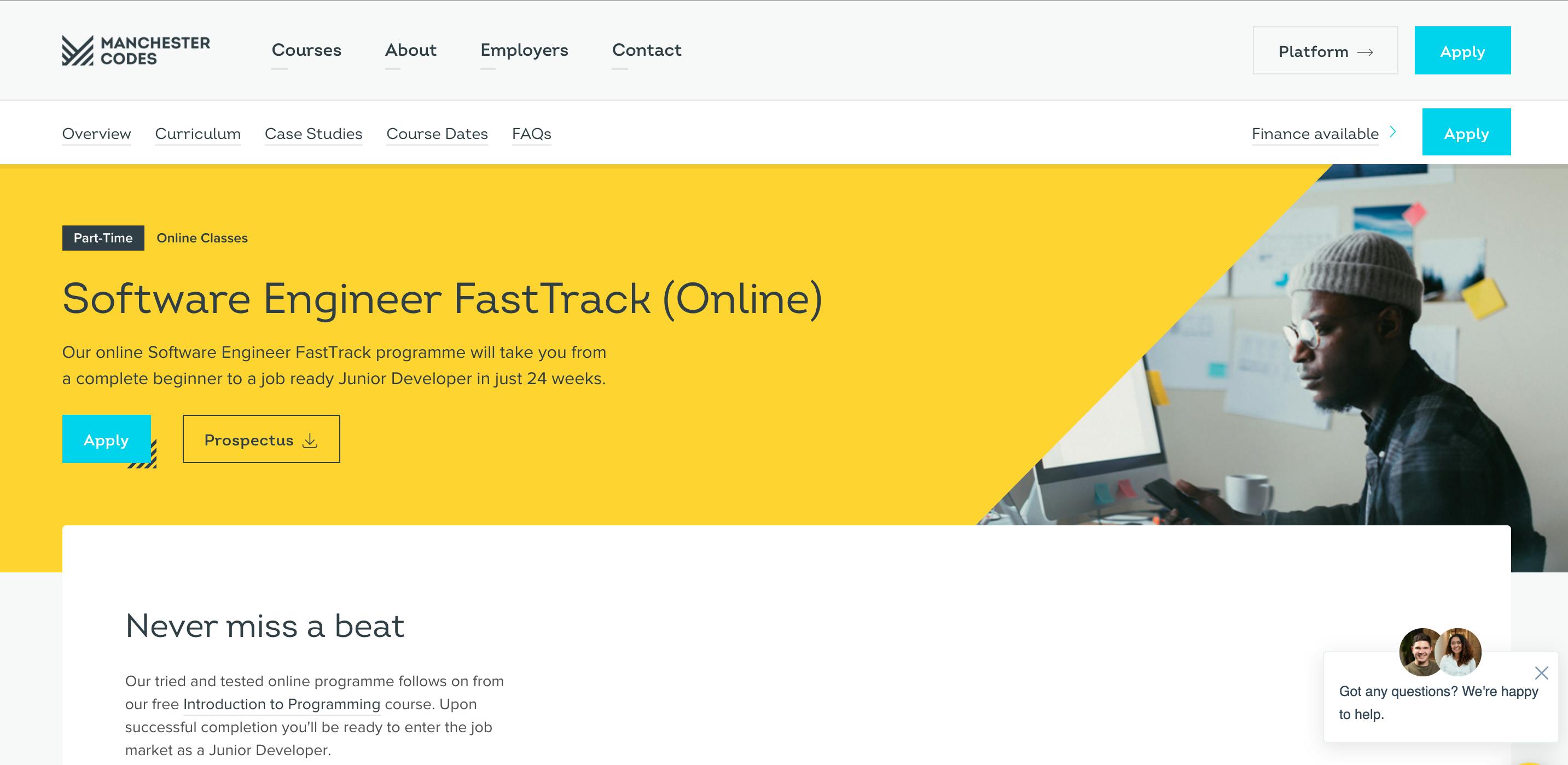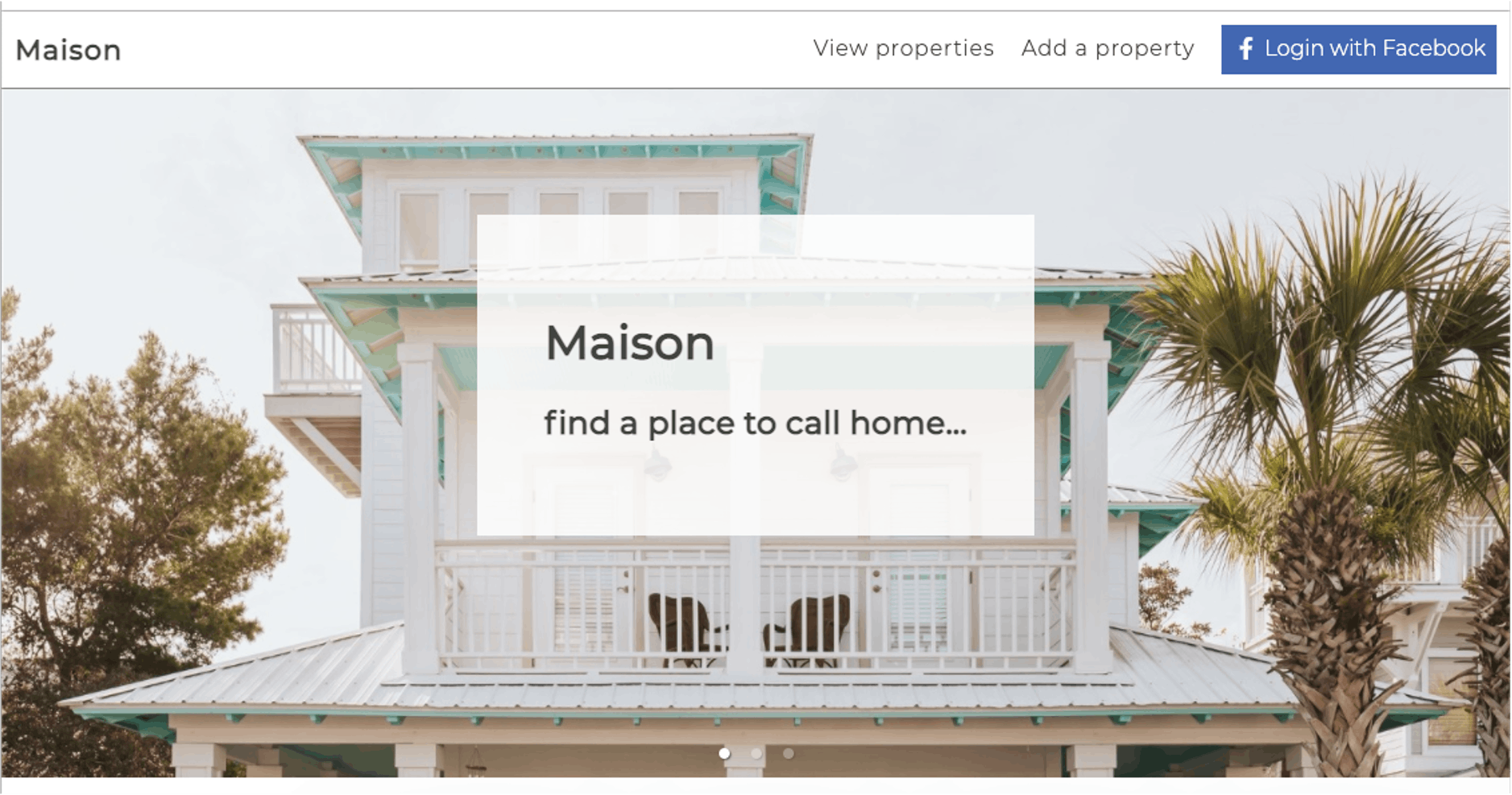From full-time mum to software engineer
A story of a successful career-change into tech with two young kids in tow
Four years ago, I was working for the National Trust. I'm a History graduate and I had spent the best part of a decade building a career in the museums and heritage sector. It was a great place to work; we spent our days caring for beautiful old buildings and looking after wonderful landscapes.
Fast-forward to last year, we've had two kids and relocated 230 miles away to a lovely, but remote spot at the other end of the country. My previous job is no longer a viable option. Time for a new adventure! So where do you turn, when you're in your mid-30s, you've been a stay-at-home parent for three years, you're (very) ready to go back to work, but your previous career is no longer an option? Good question...
"Coding bootcamps ... a way for non-tech people to retrain and learn computer programming skills"
At about that time, my friend Sam mentioned coding bootcamps. "Coding bootcamps?!", I asked. She explained that they were a way for non-tech people (like me) to retrain and learn computer programming skills, which were in high demand from employers. Could this be the answer?
It took about 30 seconds of searching online the next morning for me to start getting really excited. Yes, this was most definitely the answer.

Can I really learn computer programming from scratch?
Now, as I've already mentioned, I do not have a tech background. My school didn't even offer computing qualifications back then and the sad truth is that I probably wouldn't have considered it, even if it had been on offer. As anyone who came through the British education system in the 1990s will attest, IT (as it was universally known then), was "not a subject for girls". It doesn't seem like much has changed, although I hope it has; in 2018, only 0.4% of female pupils chose to study Computer Science at A-Level.
Instead, I chose an arts route and it was only much later that I wished I had studied Computer Science at university (not least when I found myself, in a previous role, trying to hack together a custom macro in Excel using Visual Basic and Stack Overflow and not having a clue what I was doing).
Coding bootcamps
Coding bootcamps promise to take non-tech people like me and train them up as a Software Developer (or Engineer, the terms are pretty much interchangeable) with a few months of intensive study. There are many organisations that offer bootcamps and the standard format is an intensive 12-week classroom-based course where you learn to code. Typically, bootcamps teach you HTML, CSS and JavaScript, which are the basic skills you need to be a web developer (i.e. someone who creates websites from scratch using code), along with some more complex skills. Doing a bootcamp course is like having an (unpaid) full-time job. They're usually based in cities or larger towns, although they can be remote, and they cost several thousand pounds. As a full-time mum of a toddler and a baby with a husband who worked full-time too, I was not in a position to undertake a course like that, no matter how much I wanted to. However, hope came in the form of Manchester Codes.
Manchester Codes' bootcamp course offered to teach the same skills, but part-time, over a longer period. Now that was more realistic for someone in my situation. What's more, the school looked great and they offered a discount for women (which they've recently extended to other unrepresented groups in the industry). Even better. So, my decision was made; in a year's time, when my youngest was a bit older, I would undertake their Sofware Engineering FastTrack course.

Self-teaching in my spare time
Now a year seemed a long way off and I was excited to get going, so I started to use any spare time I had to teach myself some of the basics, using free online resources. It was a good antidote to nappies and 'Wheels on the bus', I can tell you. Chances are, if you are reading this article, you will already have heard of freeCodeCamp and Codecademy; if not, go and check them out, they're great. Those were my go-to resources in the early days and I followed their free courses to learn the basics of HTML, CSS and JavaScript. I was hooked from the moment I first made 'Hello world' appear on my screen.
If you are wondering whether coding is for you, and you've never tried it before, I recommend trying freeCodeCamp's free online Responsive Web Design course as a starter for ten. It teaches you the basics of web development and within an hour or two I think you'll have a feel for whether coding is for you.
The bootcamp course
September rolled around and, for six months, I logged onto Zoom every Tuesday and Thursday evening to join my cohort on the Manchester Codes part-time bootcamp course for a couple of hours of lectures and teaching. On top of that, students are expected to commit another 20 or so hours to studying in their own time. For most of my classmates, that was during the evenings and weekends as they had full-time day jobs. For me, it was on three nominated weekdays while my heroic parents, who had temporarily relocated to be near us, looked after the boys. I could not have done it without their support and that of my husband. The course was fantastic, but intense, and I would say that I needed every one of those 20+ hours to get to grips with the course material and complete the assignments.
By about week 4 we had already caught up with everything I had taught myself over the previous year and we were moving on to more complex topics like backend development (all the stuff that goes on 'behind the scenes' of a website) and databases. The pace was fast and the material was challenging, but the Manchester Codes team were very supportive and were on hand to help whenever I was stuck or needed further explanation; one of the key benefits of taking a course as opposed to self-teaching, I found.
 One of my completed bootcamp projects - a property website built using the React framework, a tool for creating websites
One of my completed bootcamp projects - a property website built using the React framework, a tool for creating websites
One of the best bits of the course was the projects. By the end, we had created real-life websites that we could then show to potential employers as part of a portfolio, culminating in a final group project bringing together all the skills we had learned. For our final project, we built an app that monitors the UK's live renewable energy production data and allows users to run their appliances when energy is at its greenest, thereby lowering their carbon footprint.
Life after bootcamp
My main motivation for doing a bootcamp course was to find a new job and career that would work for me and my family. As a complete bonus, I discovered something that I absolutely love doing. Coding is challenging, interesting, sometimes frustrating, often satisfying and great fun. The best analogy I can think of is that successfully building something from scratch using code is like completing The Times cryptic crossword. Such a good feeling.
The course has opened doors that were closed to me previously. Shortly before graduating, I was thrilled to accept my first role as a real-life Software Engineer at BAE Systems. The next chapter begins!
Cover photo by Arnel Hasanovic on Unsplash.
